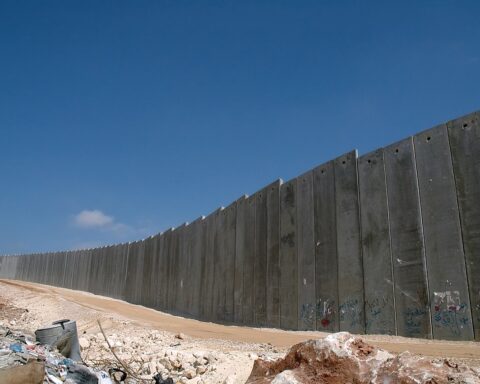Israel’s health ministry has said it will offer coronavirus vaccines to anyone over the age of 16, as part of a rapid campaign in which the majority of older and vulnerable people have already received shots.
The ministry has told healthcare providers they can start booking appointments for the new age group starting on Thursday.
One in three Israelis has received at least one injection, a far higher proportion than anywhere else. The country of 9 million had previously allowed anyone over 35, as well as at-risk groups and exam-taking students aged 16 to 18, to be inoculated.
However, on Wednesday local media reported a drop in the number of people attending appointments, with accounts of some clinics struggling to use all their allocated doses and being forced to throw away expired Pfizer/BioNtech vaccines.
The reason for the dip was not clear, but officials have previously expressed concern about apathy as well as anti-vaccine misinformation.
While injecting younger people aims to help the country reach its aspiration of herd immunity, the government is prioritising vaccinating older and at-risk people.
In a television broadcast on Tuesday, the prime minister, Benjamin Netanyahu, announced that 77% of people over the age of 50 had been vaccinated and he wanted that figure to rise to 90% within two weeks.
“This is what is challenging our health system. 97% of those who have died are in the 50-and-over age group,” he said. “I call on whoever is watching us this evening: if you have not yet been vaccinated, go and be vaccinated.”
Part of Israel’s success so far has been attributed to a steady flow of doses. Its government was able to convince Pfizer to keep it supplied with vaccines in return for real-time data on the campaign, effectively making the country a mass test case to see how vaccinations might halt the pandemic.
Studies so far have provided cautious optimism, with initial data suggesting even the early stages of inoculation campaigns might reveal marked decreases in both hospital cases and infections.
Israel’s health ministry released its first official results last week, showing that only 317 out of 715,425, or 0.04%, of people became infected a week after receiving their second dose. Those who were infected had a very low chance, 0.002%, of being hospitalised. Critical ill patient figures are dropping.
Experts have cautioned, however, that data is preliminary and could be misleading as no country can replicate clinical trial conditions. Israel is suffering a debilitating third wave of infections, with a national lockdown unable to significantly push down death rates.
Government officials blame high infection rates on the more transmissible British variant of the virus. There has also been local resentment towards certain sections of the ultra-Orthodox Jewish community that have defied lockdown rules.
While Israel has been praised for its speedy distribution of jabs, the country faces criticism for not offering to vaccinate several million Palestinians living under its control. The government agreed this week to send 5,000 doses to immunise frontline Palestinian medical workers, a move that followed international pressure.
Last month, the United Arab Emirates, which has a similar population size to Israel and is second in the race to vaccinate citizens, also lowered its minimum age to 16.






